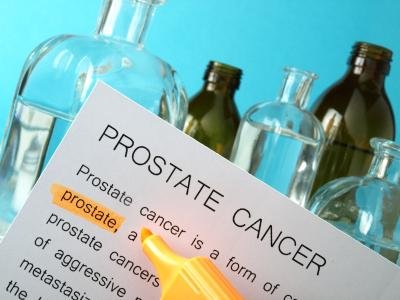Advertisment
ASCO 2017: Adjuvant abiraterone has very significant effect on prostate cancer survival

Men who have received initial treatment for prostate cancer with abiraterone added to hormone therapy achieved a survival rate 37 per cent higher than those not treated with adjuvant abiraterone, researchers reported on June 3, 2017 at the 2017 ASCO (American Society of Clinical Oncology) annual meeting.
The findings were published simultaneously in the New England Journal of Medicine.
Professor Nicholas James, chief investigator of the STAMPEDE trial and professor of clinical oncology at the University of Birmingham, UK, said, “These are the most powerful results I’ve seen from a prostate cancer trial — it’s a once in a career feeling.”
The investigators noted that abiraterone plus prednisolone is already known to improve survival in men with relapsed prostate cancer. “We assessed the effect of this combination in men starting long-term androgen-deprivation therapy (ADT), using a multigroup, multistage trial design,” they said.
The researchers randomized 1,917 subjects in a 1:1 ratio to receive ADT monotherapy or combination therapy with ADT plus abiraterone (1000 mg daily) and prednisolone (5 mg daily).
Median age was 67 years, and the median PSA level was 53 ng per milliliter.
A total of 52% of the subjects had been diagnosed with metastatic disease, 20% had node-positive or node-indeterminate non-metastatic disease, and 28% had node-negative, non-metastatic disease. And 95% had newly diagnosed disease.
Subjects with node-negative, non-metastatic disease received local radiotherapy. Subjects with positive nodes were also encouraged to receive local radiotherapy .
Among subjects with non-metastatic disease with no radiotherapy planned and among subjects with metastatic disease, treatment continued until the appearance of radiologic, clinical, or prostate-specific antigen (PSA) progression. Otherwise, treatment continued for 2 years or until any type of progression appeared, whichever came first.
The primary endpoint was overall survival. The intermediate primary outcome was failure-free survival, with “treatment failure” defined as radiologic, clinical, or PSA progression or death from prostate cancer.
Median follow-up was 40 months.
The investigators reported 184 deaths in the combination therapy group and 262 deaths in the ADT monotherapy group (P<0.001). There were 248 treatment-failure events in the combination group and 535 in the ADT monotherapy group (P<0.001).
Grade 3 to 5 adverse events occurred in 47% of the patients in the combination group (nine grade 5 events) and in 33% of the patients in the ADT monotherapy group (three grade 5 events).
“Among men with locally advanced or metastatic prostate cancer, ADT plus abiraterone and prednisolone was associated with significantly higher rates of overall and failure-free survival than ADT alone,” The authors concluded.





